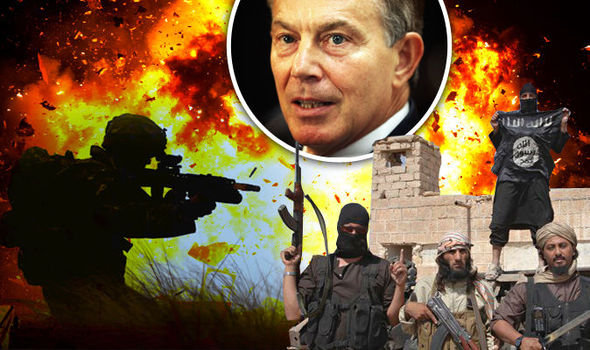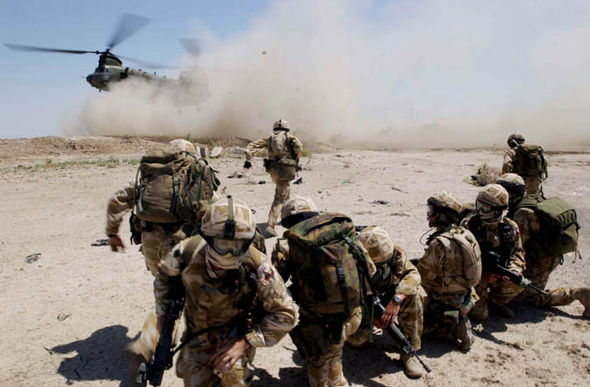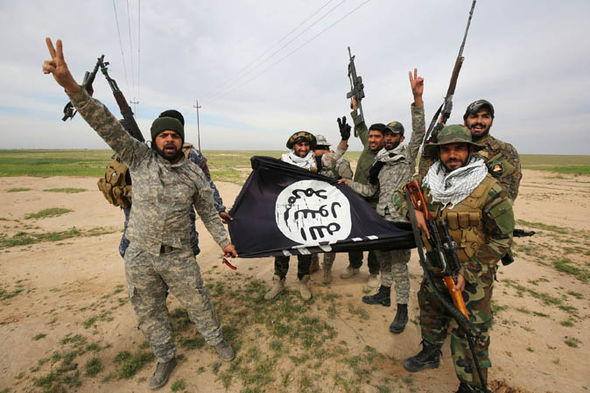Tony Blair calls for ‘proper ground war’ against ISIS

TONY Blair has admitted that the West ‘underestimated’ the problems in Iraq after the toppling of Saddam Hussein and said British troops should be sent back to the country to fight Isis.
The former Prime Minister said it was vital to take on IS on the ground, which could lead to British soldiers dying in the process.
Mr Blair stressed that Isis had to be tackled before it could make further inroads in Libya and a ‘proper ground war’ was needed to defeat the group which has strongholds in Iraq and Syria.
‘There is no way of defeating these people without defeating them on the ground. Air strikes are not going to defeat Isis, they have got to be tackled on the ground,’ he said at an event in Westminster.
Mr Blair said that did not necessarily mean British troops doing the fighting – ‘our forces could be in support’ — but to defeat IS ‘you are going to have to go and wage a proper ground war against them.’
The former prime minister said: ‘This is where we have got to learn the lessons, not just of Iraq but what has come afterwards as well.’
The choice was not between a full-scale ground invasion force which could govern the land after the fighting and not making any intervention at all, he insisted, as smaller-scale deployments by the US of special forces and other capabilities were already making a difference.
‘You have got to defeat these people on the ground. The armed forces of America, the UK, France, other major countries have both experience and capability so even if we are using them in support of local forces, you have just got to decide what our objective is.
‘Is our objective to defeat this enemy? My answer to that is yes.
‘That's why, when I look at what's happening in Libya today and I see the power of Isis in Libya today, we cannot afford as Europe to have Isis govern a large space of Libya.’
He said that would be ‘profoundly irresponsible’ if it is allowed to happen.
‘We can support local forces in taking them on, but we shouldn't be in any doubt at all that they need to be taken on and defeated on the ground, which is the place where they are fighting,’ he added.
Asked whether the legacy of Iraq meant it was more difficult for a UK leader to deploy troops overseas, Mr Blair said: ‘You can describe it as a legacy or describe it as a fact that arises from the nature of the conflict.’
He added: ‘We are not being honest with out public if we are saying it is possible to defeat these people without making the commitment to defeat them and to do what it takes to defeat them.
‘In my view, defeating them is absolutely fundamental because if we don't defeat them they are going to come and attack us here. This is not someone else's fight, it is our fight as well.’
With the Chilcot report on the Iraq War due to be published in July, Mr Blair refused to be drawn on its findings – which are expected to severely criticise him and his ministers.
But he said: ‘We underestimated profoundly the forces that were at work in the region and that would take advantage of the change once you topple the regime.
‘That's the lesson. The lesson is not actually complicated, the lesson is simple – it's that.
‘It's that when you remove a dictator, out come these forces of destabilisation – whether al-Qaeda on the Sunni side or Iran and its militia on the other side.’
Политика конфиденциальности | Правила пользования сайтом









